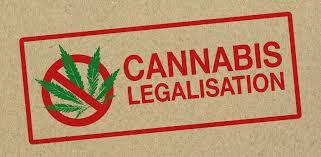Cannabis Food Products in South Africa:A ban, a backtrack, and the bigger Picture

Introduction
In a recent turn of events, the Department of Health enforced and then retracted a ban on food products containing cannabis and hemp. This incident has sparked critical discussion about regulatory transparency, public participation, and the broader implications for South Africa's emerging cannabis industry.
Legal Contradictions and Industry Impact
On the 7th of March 2025, the Department issued a notice prohibiting the sale, manufacture, and import of foodstuffs containing any part of the cannabis plant or its derivatives, including hemp seed oil. This decision was made pursuant to The Foodstuffs, Cosmetics and Disinfectants Act, 1972 which does not provide for the pre-market approval of food containing cannabis. This piece of legislation was designed to protect public health by ensuring food products meet specific safety and quality standards.
The sudden enforcement created uncertainty within the cannabis and wellness industries, particularly for small and medium-sized businesses. Stakeholders raised concerns about the financial losses, reputational damage, and potential job cuts, particularly within startups and local producers.
The ban appeared to be in conflict with the Cannabis for Private Purposes Act, which legalised the private use and possession of cannabis by adults. While the Act seeks to regulate personal cannabis use, the Department’s prohibition on cannabis-based food products demonstrated a disconnect between national cannabis reform and product-specific regulations.
The absence of public consultation prior to the ban’s implementation raised immediate concerns. Stakeholders were not given the opportunity to engage with or respond to the proposed changes, which many viewed as procedurally flawed . When introducing regulations with significant economic and legal consequences, public consultation is a fundamental principle because such decisions are the very definition of administrative action as set out in The Promotion of Administrative Justice Act 3 of 2000.
A swift reversal
Following the public outcry and pressure from industry bodies, the Presidency confirmed that the Minister of Health would withdraw the regulations just three weeks after their enactment. The Department recognised the need for inclusive dialogue with stakeholders and committed to reviewing the regulatory framework. The intention moving forward is to develop regulations that address public health concerns, while also providing clearer guidance for businesses operating in the sector.
Conclusion
Although the immediate ban has been lifted, the legal and regulatory position of cannabis and hemp food items is still undetermined. Products containing active components like cannabidiol (CBD) may still be subject to existing legislation, such as the Medicines and Related Substances Act and regulated by the South African Health Products Authority (SAHPRA).
From a client perspective, there is a clear need to stay ahead of the curve in navigating an industry that government seems intent on regulating heavily. To ensure that your business has foresight in this uncertain terrain it is imperative that the correct legal counsel is retained.
M Ntuli Attorneys are registered tax practitioners who provide assistance on a range of tax matters. We approach tax and legal issues with certainty.